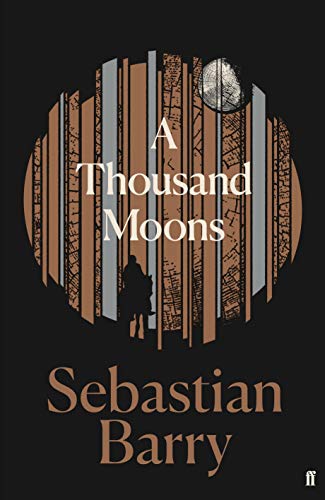A Thousand Moons
Set around Paris, Tennessee, in the aftermath of the Civil War, this stand-alone sequel to Barry’s Days without End (2016), is compellingly and unflinchingly narrated by Winona, a Lakota orphan. She is brought up on Lige Mangan’s oasis of a farm by Thomas McNulty; his lover and former comrade-in-arms, John Cole; their black housekeeper; and her talented, near-mute brother. Beyond the farm lies a world in which the Indian has no rights whatsoever, in which an outlaw can become a judge, a just man can have his house burned down without redress, and where lynch law prevails (though it is not centre-stage: one lynching is described very much like the Waco murder of Jesse Washington). Winona is raped, but is unable to remember the attack, though her stumblings after the truth of what happened to her drive the plot forward; in this, as in the murders of her family, her mind has learned to blank out trauma.
However, the novel is far from being an unremitting catalogue of violence. It is lyrical, loving, and finds human kindness and tolerance in the most unpromising circumstances. And it is, of course, beautifully written. I was hooked by page two with the phrase “It is bad enough being an Indian without talking like a raven,” in which Winona describes her determination to speak English as well as anyone else, despite (or because of) the fact that she can never be considered their equal by anyone beyond Lige Mangan’s land or lawyer Briscoe’s house. The dénouement is all the more a nail-biter because it is handled so deftly, quietly and unexpectedly.










